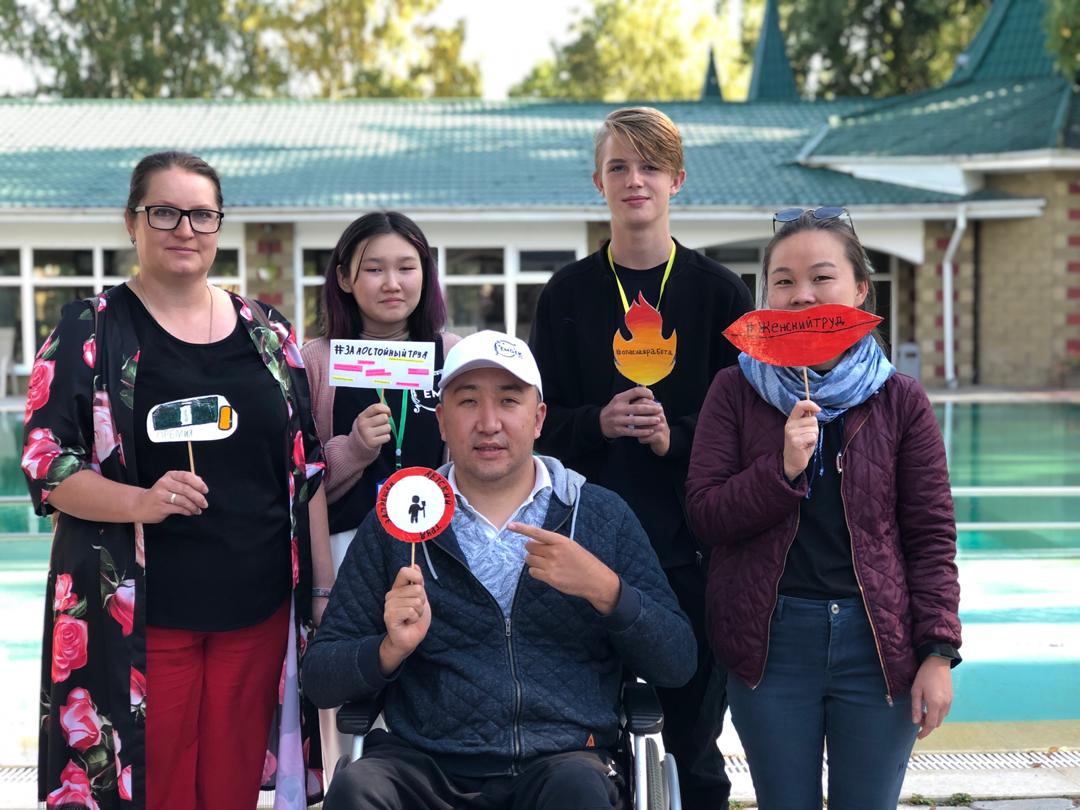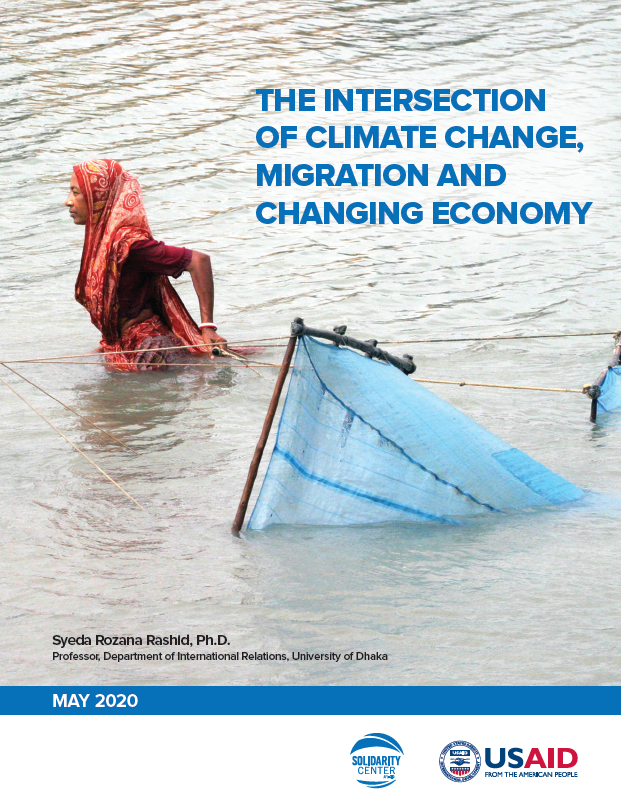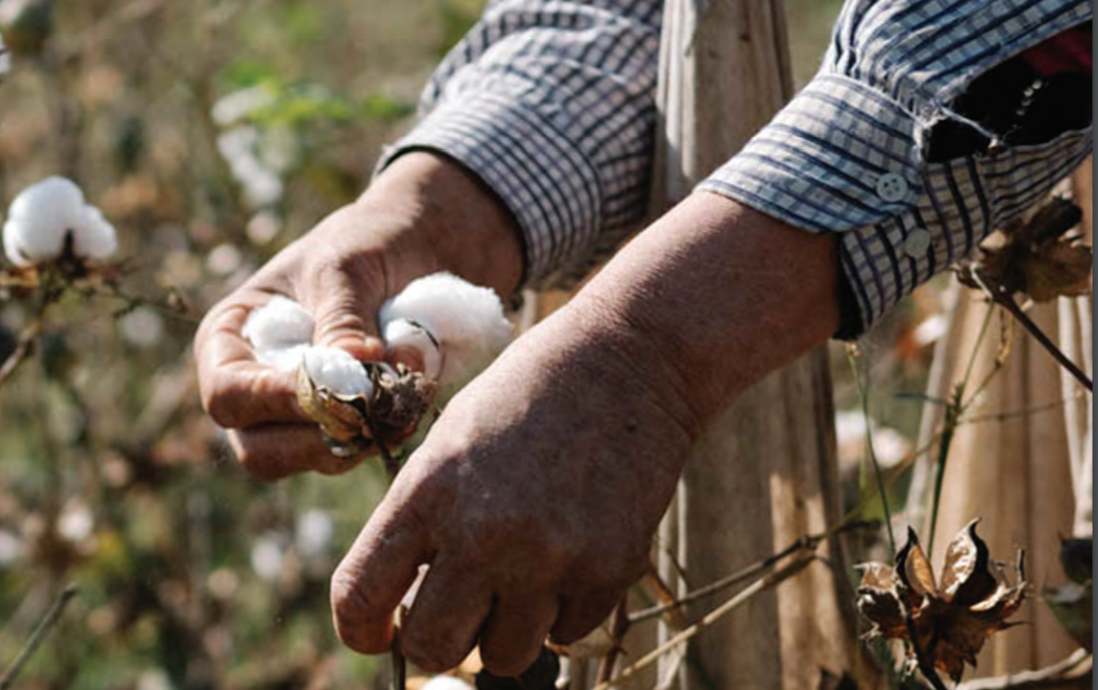To promote youth civic engagement and the fair employment of women, workers with disabilities and those migrating outside the country to earn a living, the Solidarity Center’s second annual School of Young Leaders in Bishkek educated dozens of young people in...
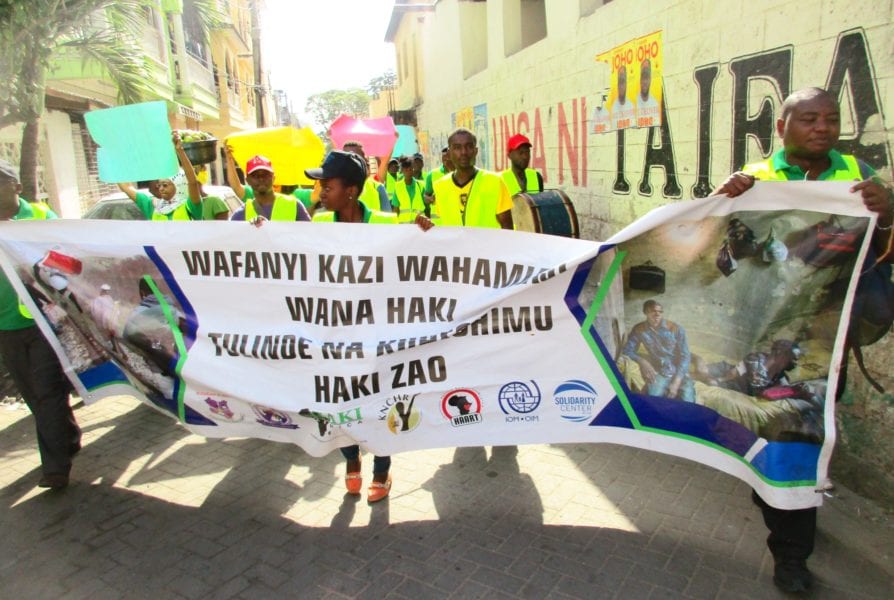
The Solidarity Center workers with partners like those in Kenya to end labor trafficking of migrant workers. Credit: Solidarity Center/Caroline Kasina
Report: Climate Change in Bangladesh Drives Worker Vulnerability, Poverty
Underscoring the immediate risk of severe climate-induced weather events in South Asia, Cyclone Amphan last month slammed into the coast of eastern India and southern Bangladesh, destroying thousands of homes and killing at least 88 people. A new Solidarity Center...
Uzbekistan: Progress, but Continued Forced Labor in Cotton Fields
A new report on Uzbekistan’s 2019 cotton harvest by Uzbek Forum for Human Rights documents progress toward ending—but not eradication—of state-sponsored forced labor, says the Cotton Campaign. The report, “Tashkent’s Reforms Have Not Yet Reached Us,” finds that a...
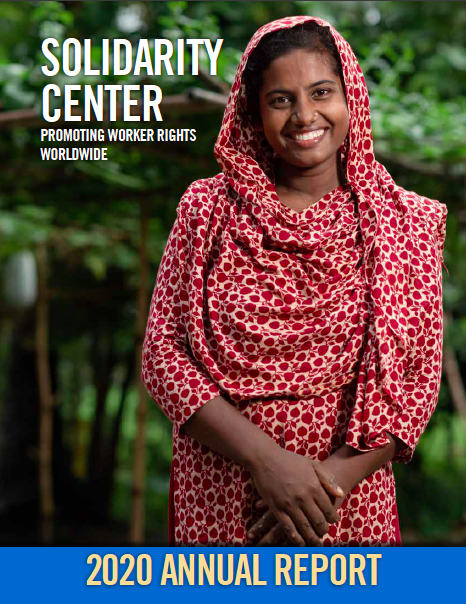
2020 Annual Report
Download here.
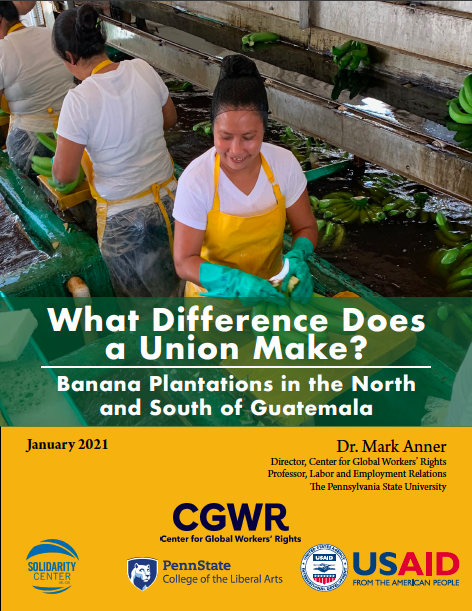
What Difference Does a Union Make? Banana Plantations in the North and South of Guatemala
Guatemalan banana workers without a union work longer hours and earn less than half than of those who are unionized, and report more cases of verbal and physical abuse. Download in English. Download in Spanish.
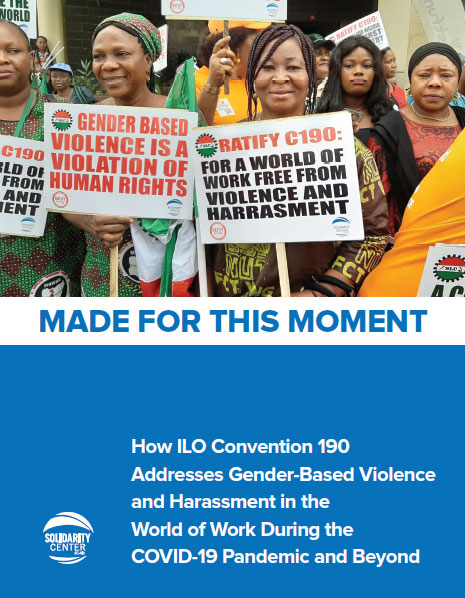
Made for this Moment: How ILO Convention 190 Addresses Gender-Based Violence and Harassment in the World of Work During the COVID-19 Pandemic and Beyond
This report highlights how C190, the first global treaty that recognizes the fundamental right to work free from gender-based violence and harassment (GBVH), addresses GBVH in the world of work and identifies concrete steps to address it. Read the full report here in...
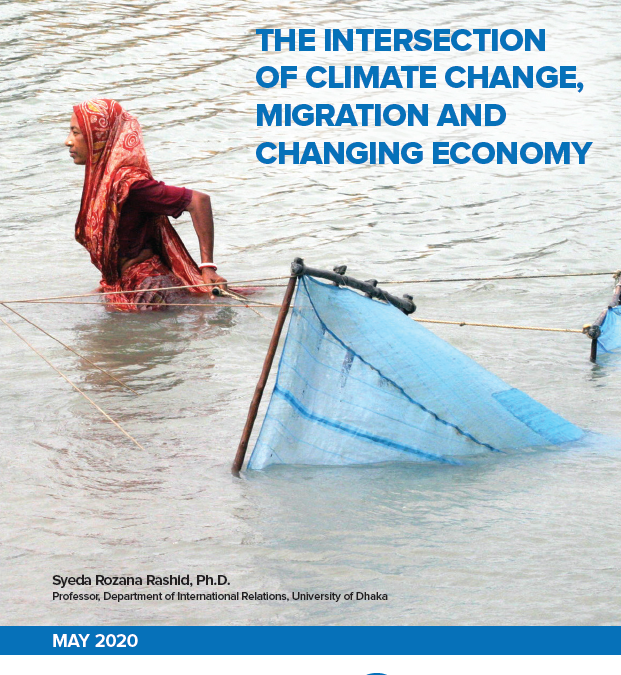
REPORT: CLIMATE CHANGE IN BANGLADESH DRIVES WORKER VULNERABILITY, POVERTY
This report, The Intersection of Climate Change, Migration and Changing Economy, explores the links among climate change, economic activities and migration in the coastal areas of Khulna and Jashore, Bangladesh, demonstrating its impact on the availability of decent...
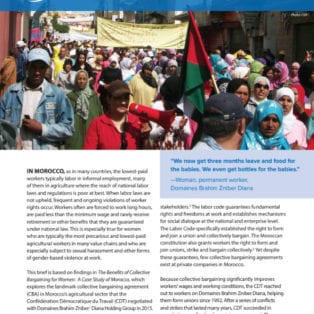
The Benefits of Collective Bargaining for Women Workers in Morocco
Download in English. Download in Arabic. This report was made possible through the generous support of the Ford Foundation.
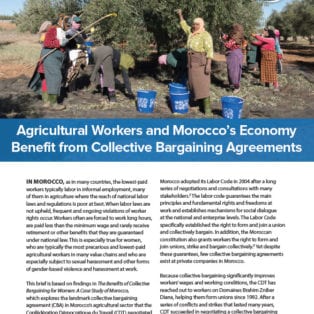
Agricultural Workers and Morocco’s Economy Benefit from Collective Bargaining Agreements
. Download in English Download in Arabic. This report was made possible through the generous support of the Ford Foundation.


